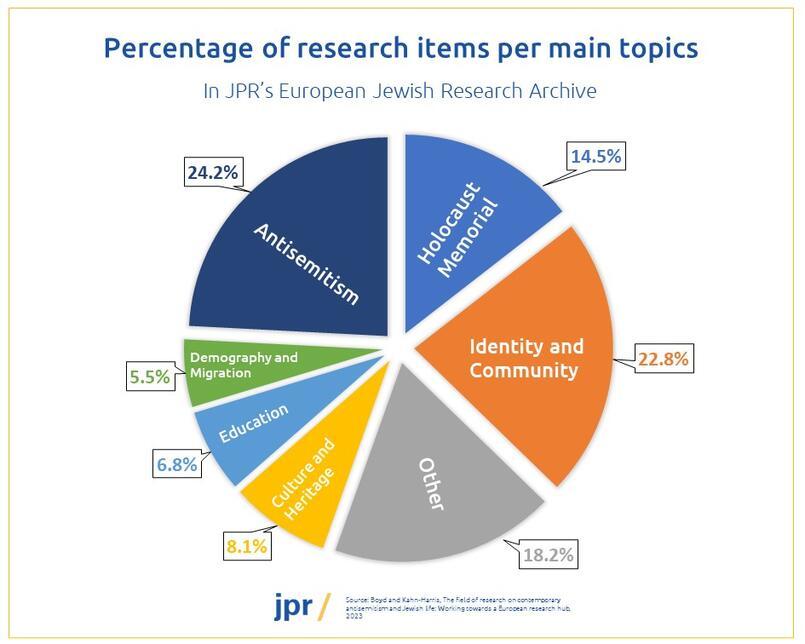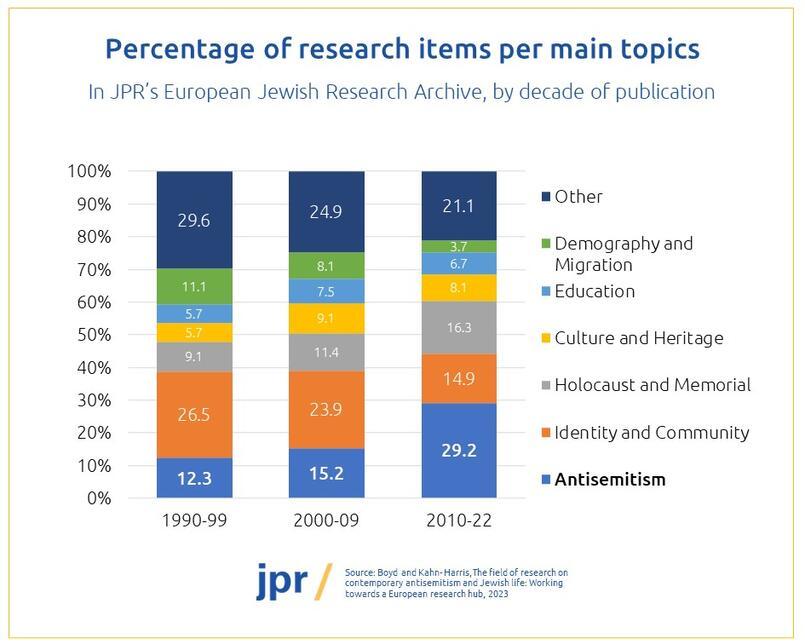While more and more researchers are looking at antisemitism, other aspects of Jewish life remain under-researched. Creating a European research hub to help foster Jewish life could be a game changer
Dr Keith Kahn-Harris
and test your family's knowledge of Jews worldwide while reading the Haggadah!
Dr Keith Kahn-Harris
The next few years will likely be exciting for those interested in research on contemporary antisemitism and Jewish life in Europe.
In its Strategy on Combating Antisemitism and Fostering Jewish Life (2021-2030), published in October 2021, the European Union announced its intention to ‘foster, in cooperation with the Member States and the research community, the creation of a European research hub on contemporary antisemitism and Jewish life and culture fostering multidisciplinary research across Europe and fund research through Horizon Europe, on various structural forms of racism and xenophobia, taking into account national specificities and intersectionality.’
Such a research hub could well be a game-changer in supporting and raising the profile of the research field in which JPR plays an important role. Indeed, such a hub would benefit European countries outside the EU, via the Horizon research grant programme (which will likely include the UK too).
To lay the groundwork for this hub, the European Commission asked JPR to ‘map’ the field of research on contemporary antisemitism and Jewish life in Europe and formulate some recommendations on what the proposed hub should look like and how it should function. To do so, JPR analysed the holdings of its European Jewish Research Archive (EJRA), our free-to-access repository of social research on contemporary antisemitism and Jewish life in Europe. It was the second time we had conducted such an analysis, and we now have a sophisticated methodology for tracking strengths and absences in this field.
As one would expect in research on such a disparate field, the findings are complex and multi-layered. But one conclusion that came through loud and clear is that there has been rapid growth in antisemitism and Holocaust research in recent years.
All research publications included in EJRA are tagged with one of seven ‘main topic’ tags, and ‘antisemitism’ alone accounts for nearly a quarter of all items:

What is even more striking is that the proportion of research items with antisemitism as their main topic has more than doubled since the 1990s:

While opinions will differ on the ‘ideal’ balance of research topics in the field, it is striking that some of the most critical aspects of Jewish life are of interest only to a limited number of researchers. For example, Jewish education (other than antisemitism and Holocaust education) has become a ‘niche’ interest despite the growth of Jewish schools and other educational projects in the last few decades. Indeed, no research on Jewish education exists for 13 European countries, including countries with Jewish populations large enough to support Jewish schools, such as Denmark, Italy and Greece.
Our research also examined the most active researchers on contemporary antisemitism and Jewish life in Europe. We identified the 181 most productive researchers in each European country, for which there is some research in this field. One of the most striking findings was that, of researchers with PhDs who specialised in antisemitism, the majority had completed their PhD research on a topic unrelated to antisemitism or Jewish life. Further, compared to other topics in the field, researchers who specialised in antisemitism were less likely to have also published on different topics concerning contemporary Jewish life.
The proliferation of ‘new entrants’ into the antisemitism research field not only leaves other essential aspects of Judaism under-researched but may also risk duplication of efforts and lack of coordination.
These and other findings suggest that antisemitism research attracts researchers from other disciplines and is the pre-eminent concern amongst researchers in the field. The proliferation of ‘new entrants’ into the antisemitism research field not only leaves other essential aspects of Judaism under-researched but may also risk duplication of efforts and lack of coordination.
This conclusion has implications that we discuss in detail within the report. I certainly don’t argue that there is ‘too much’ research on antisemitism; however, the relative imbalance between this topic and other aspects of Jewish life suggests that one possible task for the proposed hub is to nurture a better balance between research topics.
The possibilities are exciting regardless of how the European Commission decides to form such a research hub. Yet for such a hub to succeed in fostering Jewish life, not ‘just’ fighting antisemitism, we must divert some of the research efforts across Europe towards topics such as education, migration, identity and culture. Simply put, we need to encourage researchers of contemporary Judaism to focus on underrepresented – yet just as important - topics within the field.
Senior Research Fellow and Project Director of the European Jewish Research Archive
Senior Research Fellow and Project Director of the European Jewish Research Archive
Keith Kahn-Harris has been Project Director of the European Jewish Research Archive since its inception in 2014, managing the collection process and analysing its holdings...
Read more